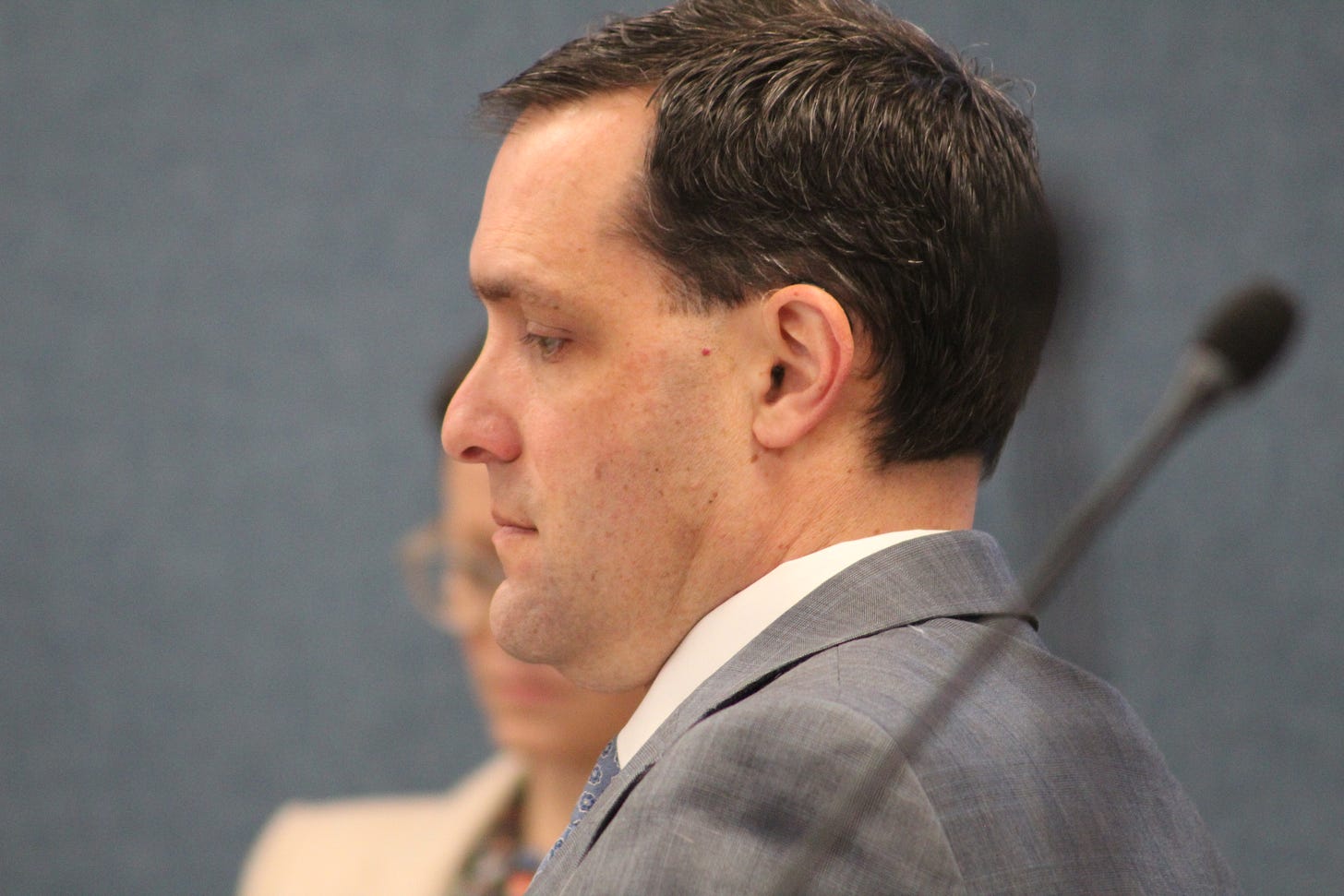Inside the less-than-longshot effort to bolster government transparency
On Wednesday, Democrats are unveiling a bill to give North Carolinians a constitutional right to access public meetings and government records. The bill will fail. Why you should still care...
In the interest of transparency, I am making this post available to all readers. If you want to support my continued reporting, please consider telling a friend to join Anderson Alerts, giving a gift subscription or upgrading to a paid membership, all of which can be done here.

The state budget North Carolina enacted in October greatly reduced transparency in state government by allowing current and former members of the General Assembly to disclose, withhold, sell or destroy any communications as they see fit.
In the eight months since the budget took effect, most lawmakers have taken advantage of their newfound power by refusing to respond to public records requests, let alone turn over any of their communications. (When I asked all lawmakers to provide a mere email of their choice, most didn’t respond)
“You can't let the fox guard the hen house unless you just want to see feathers at the end of the day,” Senate Democratic Leader Dan Blue said in an interview.
While some Republicans have privately voiced concerns with last year’s erosion of public records laws, the brunt of the pushback has come from Democrats, advocacy groups, media organizations and news associations— none of whom have been willing or able to take concrete action to challenge the public records law revisions. That is, until now.
On Wednesday, Sens. Graig Meyer and Dan Blue, Reps. Pricey Harrison, Diamond Staton-Willians, Lindsey Prather and Tim Longest and others are planning to unveil a proposed constitutional amendment.
Anderson Alerts obtained a draft copy of the measure.
If the legislation were approved with at least three-fifths support in both the House and Senate, voters would weigh in on the issue at the ballot box in November. If approved, North Carolinians would then gain a constitutional right to access public records and public meetings.
Meyer, the most transparent lawmaker in the legislature and lead sponsor of the proposed constitutional amendment, said the bill would also enable individuals to have a fighting chance of successfully suing over last year’s budget provisions exempting lawmakers from the state’s public records law.
But the measure is dead on arrival. That’s because some Democrats and many Republicans are trending in the opposite direction on transparency by ignoring records requests completely or backing measures that make other state entities less accountable.
While the bill doesn’t have the least bit of chance of passing this year, it still matters. It’s the first serious action anybody has taken to unravel the changes the new state budget made to public records laws.
“People have the assumption that they have access to public records and public meetings, and I think people would be surprised to find out that they don't have a right to that,” Meyer said. “This amendment, if placed on the ballot, would be extremely popular. I believe it's possible that we could actually have it happen at some point in time. It won’t likely happen this year. But at some point in the future, I think that we can build the public momentum for a public right.”
A poll commissioned by the conservative John Locke Foundation last year found that strong majorities of likely voters of all parties want transparency from state lawmakers.
Asked how important open records laws are in ensuring transparency and accountability among state legislators, nearly 94% of respondents said the laws were at least somewhat important, including 92% of Republicans, 93% of Democrats and 97% of unaffiliated voters.
📜 Historical precedent
The proposed constitutional amendment adds another timestamp to a yearslong debate.
In 2011, Republicans took full control of the legislature for the first time since 1870. Just 45 days into their newfound majority, several lawmakers sponsored a similar constitutional amendment to the one Meyer is proposing. The 2011 bill would have created a public right to know about governmental activities in the state, but never got a hearing.
Meyer said he reached out to Sens. Ralph Hise, Brent Jackson and Buck Newton, all of whom backed the initiative when they were freshmen members. But 13 years later, Meyer said all three declined to support the latest effort, as did Senate leader Phil Berger.
Berger and House Speaker Tim Moore have said they won’t reconsider the public records law changes enacted in last year’s state budget.
Even so, Berger is encouraging his members to be responsive to requests for their communications.
“What I would recommend to members is to look at the request, to look at the law and make a determination as to [whether] the requested information is a public record,” Berger told reporters when lawmakers returned for the start of the short session in April. “If they determine that it’s not a public record, then I think they’re free to say, ‘We don’t have any public records that are responsive to your request.’”
🤫 Sounds of silence
Half of Berger’s 30-person caucus didn’t respond to my request for disclosure of a single email of their choice, a Raleigh News & Observer request for one day’s worth of emails, or some combination of the two. Meanwhile, just one of 72 House Republicans (Rep. Frank Sossamon) was responsive to either of the requests.
While Democrats have been far more willing to turn over their emails, a fair share of them have been unresponsive. One in four Senate Democrats and nearly one in two House Democrats were unresponsive to either of the records requests made by me or the N&O.
After last year’s budget took effect, Blue pledged to be transparent and encouraged his Democratic colleagues to do the same.
“As has been the case during my tenure, the Senate Democratic Caucus has upheld this principle of good governance, and I encourage all legislators to continue to do so,” Blue wrote in a letter.
In an interview, he said some of his colleagues were reticent to disclose communications until Republicans did so first. He now sees a window for change.
“Some of the members were concerned about unilaterally disarming,” Blue said. “[Some members thought] ‘if that's going to be the policy, then why should we open ourselves up to ridicule and complaint when the law doesn't require it and the Republicans aren't going to do it?’ That's when we started having very deep and more serious conversations.”
Democrats are scheduled to hold a news conference at 1 p.m. Wednesday to unveil their proposal.




